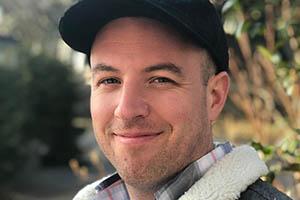Communications
Researching the Extreme to Improve the Mainstream

"The Internet has the potential to improve our democracy but the current moment in history I think most people agree… that it's very damaging to our democracy."
That's the opinion of Brian Hughes, an American University (AU) Communication Studies PhD student, who studies ideological extremism on the internet. He was recently interviewed on an NPR segment about new social media networks championed by the alt right, but his research covers extremism across all ideological bents, from Islamist extremism to historical cults and current niche web communities.
Hughes argues that new technology and internet distribution, which just about anyone can use, allows the creation of professional looking design that can rival established, big-budget sources. This allows extremist media that "was marginal and looked marginal" to now spread farther and more efficiently, especially into the mainstream.
The results? Real, serious damage in the real world, from acts of violence to infiltration of political systems. Hughes believes that understanding how these groups communicate, build communities, and influence prevailing attitudes and conversations, is important to stopping this damage.
His interest in the link between media studies and real world change go back to his time at Queens College CUNY, where he earned his master’s degree. The media studies program there "focuses on the implementation of media studies as a means of achieving justice within society," according to Hughes. He carried his interest in improving society through media to his PhD studies at AU.
The focus of AU School of Communication's program on turning research towards improving democracy is "more important today than it has ever been." Hughes is appreciative of the "incredibly supportive environment" of the program. "The encouragement of the people in the communication department is really remarkable. There's so much expertise in so many important areas."
Expertise is important in the study of these areas of the internet. "You do have to come at this with a sort of understanding of the rhetorical tricks and the bad faith appeals to science to occur in some of these spaces," Hughes says, of his primary source research. "Because if you're not aware of these broader discourses that these groups are distorting, you can be taken in by the propaganda."